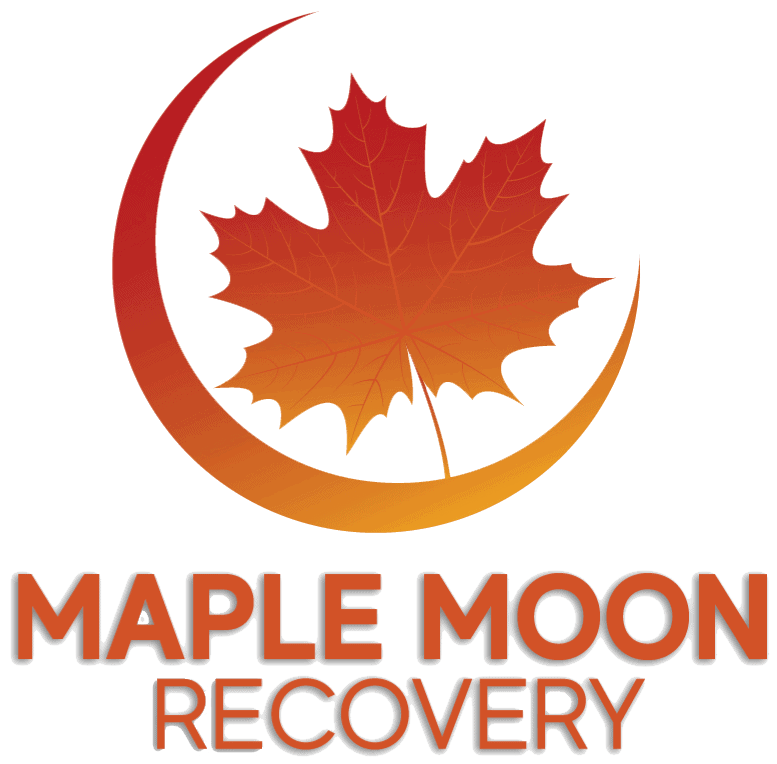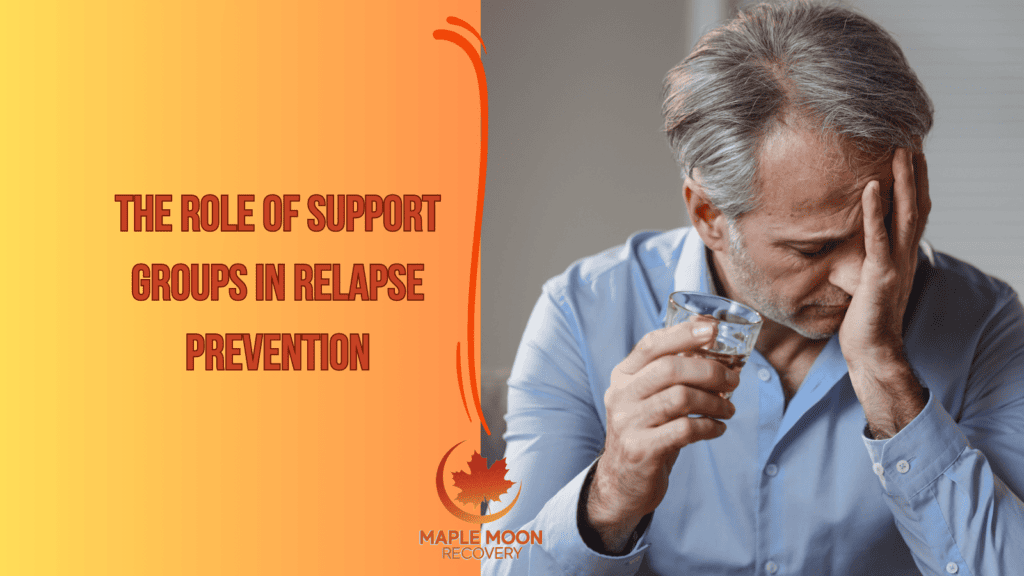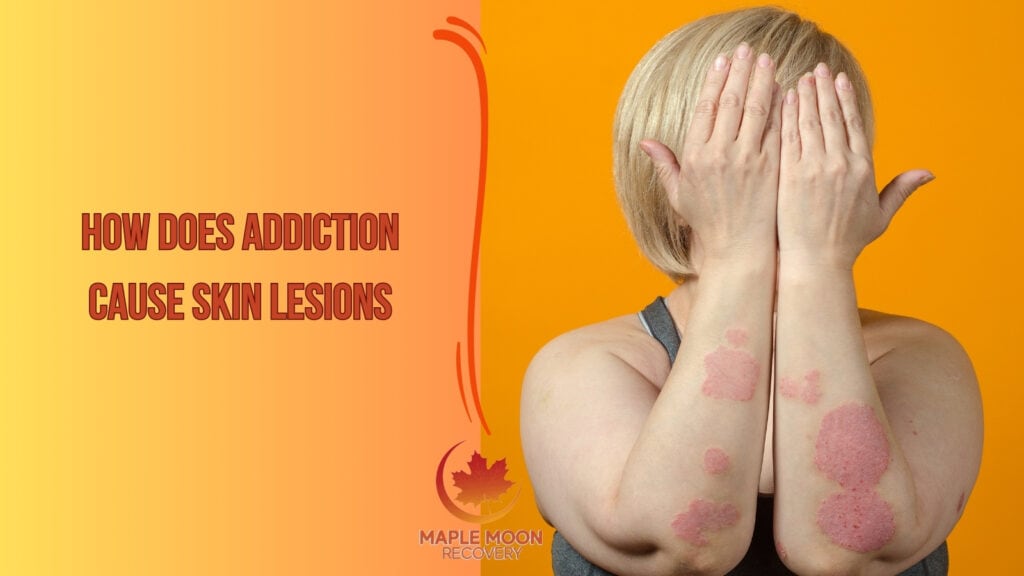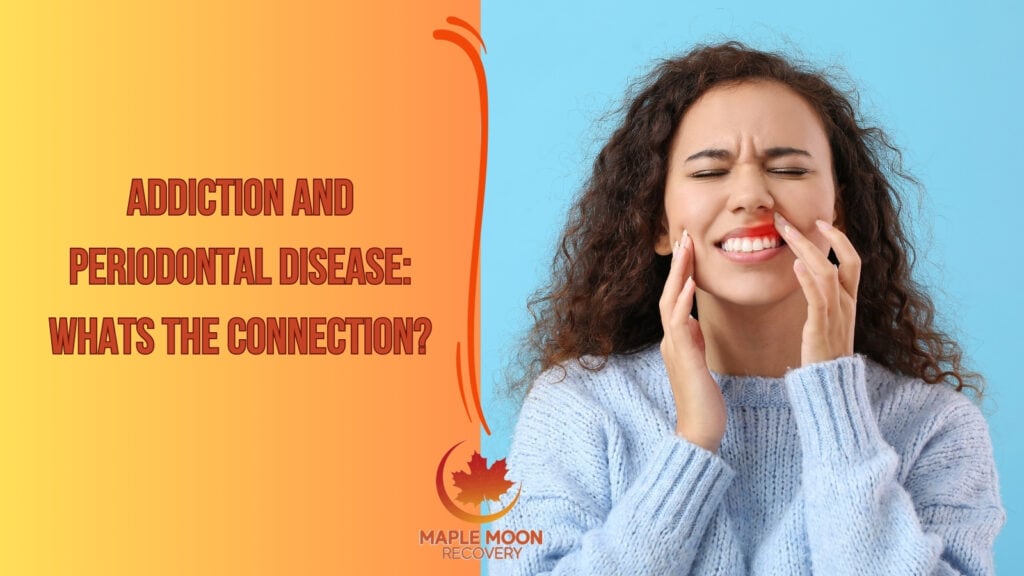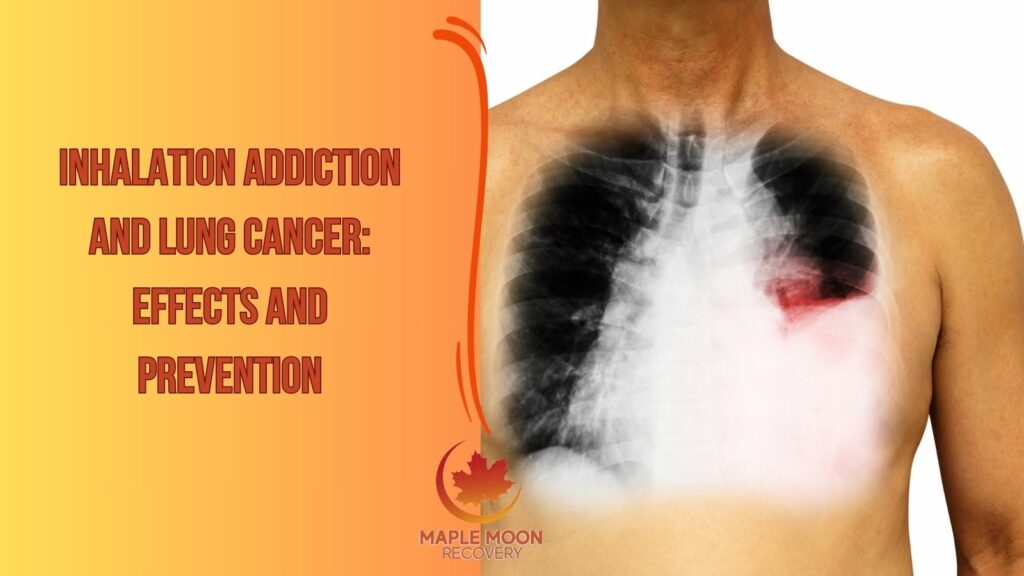The journey towards overcoming addiction often involves more than individual resolve; it encompasses the collective strength found in support groups. These groups provide a platform for shared experiences and mutual understanding, playing a vital role in the multifaceted process of addiction recovery.
What Is Relapse Prevention?
Relapse prevention is a strategic approach in addiction recovery, aiming to identify and manage high-risk situations associated with substance abuse relapse. It’s a cornerstone in the journey towards lasting sobriety, emphasizing the importance of ongoing self-awareness and proactive coping strategies.
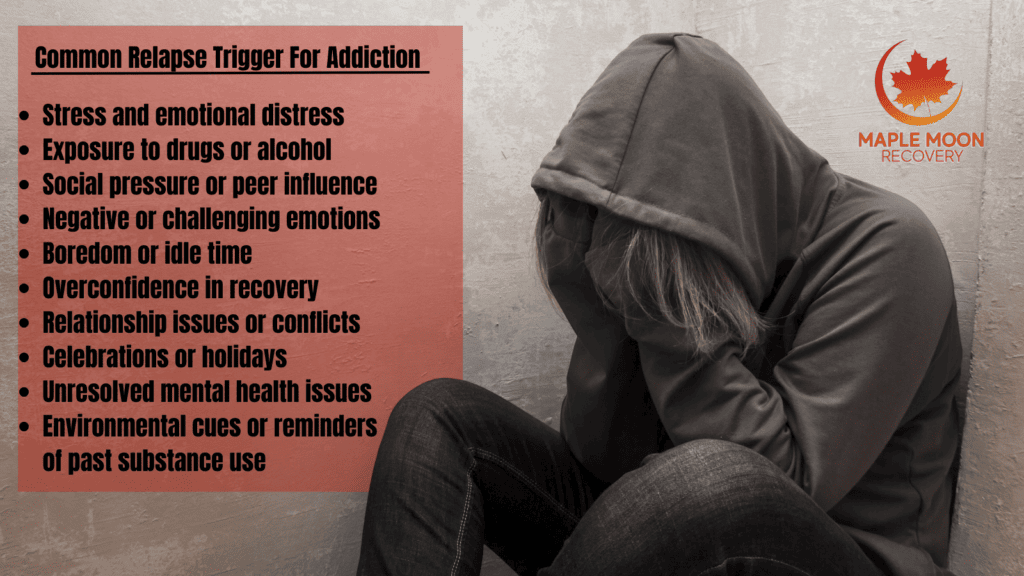
What Are Some Common Triggers and Challenges?
Recovery from addiction is a continuous process, often laden with challenges and triggers. These can include stress, environmental cues, social pressures, and emotional turmoil. Each individual may have unique triggers, making personalized strategies essential in relapse prevention. Recognizing these triggers is the first step toward developing effective coping mechanisms.
What Is The Importance of a Comprehensive Approach?
A comprehensive approach to relapse prevention involves a blend of medical, psychological, and social support. It’s not just about avoiding substance use; it’s about cultivating a healthy, fulfilling life. This holistic approach includes evidence based therapy, lifestyle changes, and support systems, all working in tandem to fortify individuals against the risks of relapse.
What Is The Function of Support Groups in Recovery?
Support groups play a pivotal role in the recovery process by providing a safe and understanding environment for sharing experiences and struggles. These groups, led by peers or facilitators, offer emotional support, foster a sense of community, and provide practical advice for staying sober. They serve as a platform for mutual encouragement and accountability, which are critical components in relapse prevention.
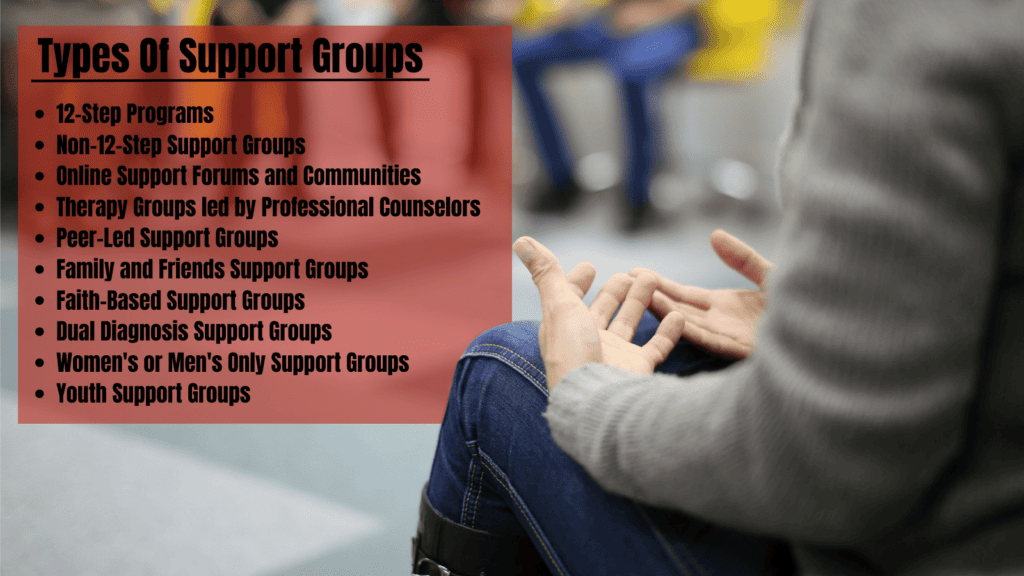
What Are The Different Types of Support Groups?
There are various types of support groups available to cater to different needs and preferences:
- 12-Step Programs: Groups like Alcoholics Anonymous and Narcotics Anonymous follow a set of guiding principles for recovery from addiction.
- Non-12-Step Support Groups: Organizations such as SMART Recovery offer alternative recovery approaches, focusing on self-empowerment and scientific knowledge.
- Online Support Forums and Communities: Digital platforms that provide a space for sharing experiences and support remotely, accessible anytime.
- Therapy Groups led by Professional Counselors: Facilitated by licensed therapists, these groups focus on structured recovery approaches and psychological healing.
- Peer-Led Support Groups: Run by individuals in recovery themselves, these groups offer mutual support and shared experiences.
- Family and Friends Support Groups: Groups like Al-Anon and Nar-Anon provide support for the loved ones of those struggling with addiction.
- Faith-Based Support Groups: These groups integrate spiritual or religious beliefs with addiction recovery support.
- Dual Diagnosis Support Groups: Specifically for individuals dealing with both substance abuse and mental health issues, offering tailored support.
- Women’s or Men’s Only Support Groups: Gender-specific groups providing a safe space to discuss issues unique to each gender in recovery.
- Youth Support Groups: Aimed at teens and young adults, these groups address the specific challenges faced by younger individuals in recovery.
What Are The Benefits of Participating in Support Groups?
Engaging in support groups offers numerous benefits. Members gain insights from others who have faced similar challenges, reducing feelings of isolation and stigma. These groups provide a platform for learning new coping skills and receiving constructive feedback. Regular participation in support group meetings can significantly bolster an individual’s commitment to recovery and enhance their ability to navigate the complexities of life without reverting to substance abuse.
What Does the Research Say About Support Groups and Relapse Prevention?
How effective are support groups in preventing relapse? This question has been the focus of extensive research, yielding encouraging results. For instance, studies featured in reputable publications like the ‘Journal of Addiction Medicine’ have consistently demonstrated the positive impact of support groups in the recovery process. Notably, one such study revealed that individuals who regularly attend support group meetings are 40% more likely to maintain sobriety over a year than those who do not participate in such groups.
How To Join The Right Support Group For You?
Selecting an appropriate support group is a personal decision and key to a successful recovery journey. Factors to consider include the group’s focus (substance-specific or general addiction), size, meeting format, and the overall philosophy. Many find it helpful to visit several groups before deciding which one resonates most with their personal recovery goals.
What to Expect During A Support Group Meeting?
Newcomers to support groups can expect a welcoming and non-judgmental environment. Meetings typically involve members sharing their experiences, challenges, and successes in a confidential setting. While participation is encouraged, members can also benefit from simply listening to others’ stories. The structure of these meetings varies, with some following a formal agenda and others adopting a more casual, open discussion format.
How Does Commitment to the Process Play A Role?
The benefits of joining a support group are often proportional to the level of engagement and consistency of attendance. Active participation and regular attendance are crucial for building trust and rapport within the group, which in turn enhances the support and guidance received. Commitment to the process, therefore, plays a significant role in the effectiveness of support groups as a tool for relapse prevention.
What Are The Challenges and Limitations of Support Groups?
While support groups are beneficial, participants may face challenges such as differing group dynamics, varying levels of commitment among members, or finding a group that aligns with their personal beliefs and recovery approach. It’s important to recognize that not every group will be the right fit for every individual.
Support groups are a vital component of recovery, but they are not a standalone solution. They should be part of a broader recovery plan that may include professional counseling, medication assisted therapy, and personal development strategies. Additionally, some individuals may require specialized support that goes beyond the scope of what peer-led groups can provide.
How To Overcome Barriers and Get The Most Out Of A Support Group?
To maximize the benefits of support groups, it’s crucial to remain open-minded and patient in finding the right group. Participants should also be aware of the need for professional help in tandem with group support. Embracing the communal spirit and shared experiences within these groups can greatly enhance the recovery journey.
Empowering Your Recovery Journey: The Final Piece
As we have seen, support groups are a fundamental component in the battle against addiction. Their role in providing a safe haven for sharing experiences, gaining strength from peers, and learning new coping strategies is invaluable. They are more than just meetings; they are lifelines that offer hope and guidance on the road to recovery.
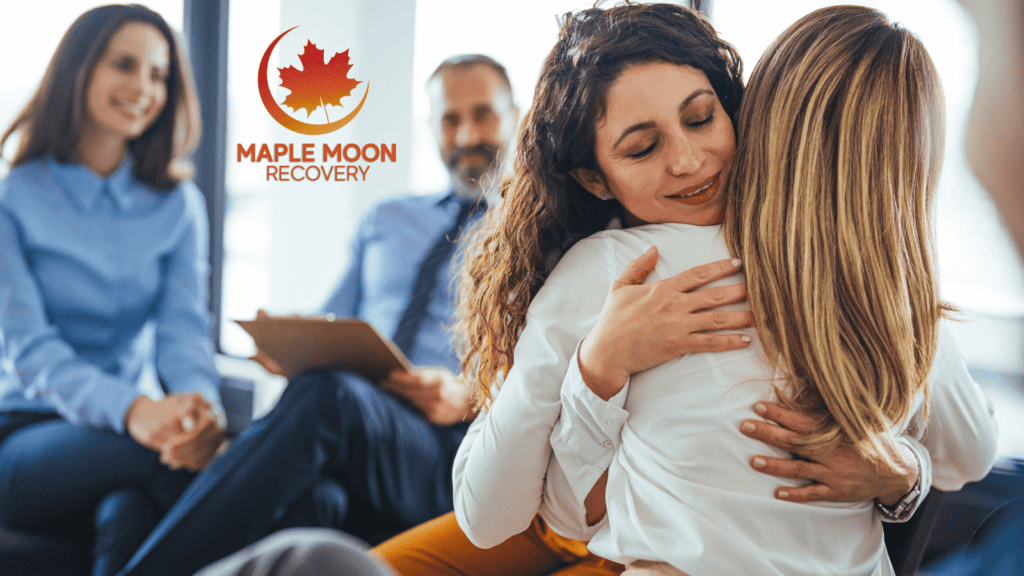
Discovering Comprehensive Care at Maple Moon Recovery
In the quest for effective addiction treatment, finding a center that integrates these vital support systems is crucial. Maple Moon Recovery, located in the vibrant city of Los Angeles, California, stands out in this regard. Here, support groups are not just an adjunct but a core part of the treatment process.
At Maple Moon Recovery, we recognize that each individual’s journey is unique, and so is our approach to treatment. By weaving support groups into our comprehensive Residential Inpatient Treatment Program, we provide our clients with an environment that nurtures both individual and collective growth. Our focus is on creating a harmonious balance between professional therapy and the empathetic support of group settings.
How To Take the Next Step with Maple Moon Recovery?
A Path Forward: If you or a loved one is navigating the challenges of addiction, contact us today. Our Los Angeles-based center offers a blend of professional care and community support, tailored to empower and sustain your journey towards recovery.
If you are in trouble, contact us!
Please reach out to us today at (888) 820-7390 to book your appointment! And start your healing journey at our convenient facility.
